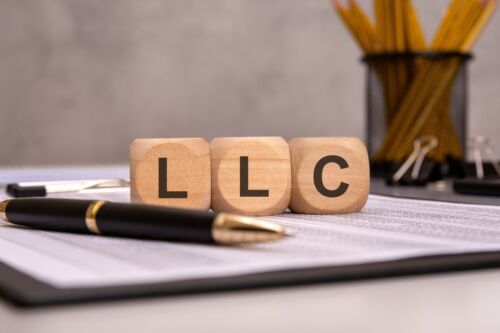Recovery Against a Defendant’s Interest in A Limited Liability Company

There is a specific legal remedy available in Michigan to creditors seeking to recover a judgment against a defendant’s interest in a limited liability company (LLC). After securing the judgment, a creditor can obtain a charging order, which directs the LLC to pay the defendant’s distributions in order to satisfy the judgment. This process allows a creditor to recover from the debtor’s interest while preventing the forced sale of a multi-member LLC — which could ultimately harm the rights of the other LLC members. If you’re a creditor, it’s important to understand how a charging order works and what the limitations of this tool are.
What is a Charging Order?
A creditor cannot seize assets from an LLC if the judgment is not against the LLC itself. This is why ownership of an LLC provides significant asset protection. But there is still a legal remedy that may be available to creditors under Michigan law when it comes to satisfying a judgment owed by an LLC member. Specifically, a charging order is a tool that can be used by a judgment creditor to collect from a defendant who owns a membership interest in a limited liability company (LLC).
It’s critical to be aware that a charging order is a method for enforcement — it does not necessarily prevent challenges to the underlying judgment. A charging order can be eliminated if a debtor files for bankruptcy or successfully contests the validity of the judgment. A debtor may also extinguish a charging order by satisfying the judgment and paying the debt.
How Does a Charging Order Work?
A charging order is an exclusive remedy. It is the only legal method by which a creditor can satisfy a judgment from a member’s interest in an LLC. The creditor cannot seize or force the sale of the membership interest. Rather, it places a legal claim on distributions. The charging order effectively acts as a lien on the member’s economic interest — the creditor is entitled only to distributions that the member would otherwise receive. If the LLC does not make any distributions, the creditor would not receive anything.
It’s vital to be aware that charging orders are limited by the following:
- No membership rights — The creditor does not become a member of the LLC and cannot exercise any management or voting rights. The debtor-member retains all membership rights in the LLC, except the right to receive distributions to the extent they are charged.
- No foreclosure — Michigan law prohibits foreclosure on the lien created by a charging order. This protects the LLC and its members from external interference.
- Exemption laws apply — The debtor-member retains the benefit of any applicable exemption laws in Michigan, which may further limit the creditor’s ability to collect on the judgment.
An LLC offers crucial asset protection. This business structure is specifically designed to safeguard companies from disruptions due to a member’s personal financial issues. It ensures that creditors cannot interfere with the operation or ownership structure of the LLC.
Contact an Experienced Michigan Business Litigation Attorney
If you are a creditor seeking to recover against a defendant's interest in an LLC, it’s essential to work with a skillful attorney who can guide you through the legal process of obtaining a charging order. With office locations in East Lansing, Mt. Pleasant, Grand Rapids, and Detroit, The Gallagher Law Firm represents business owners, creditors, and LLC members for a wide range of legal matters. To learn more about how we can assist you, contact us online, call (517) 853-1515 or email bpg@thegallagherlawfirm.com.

